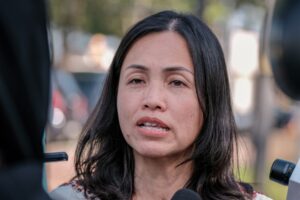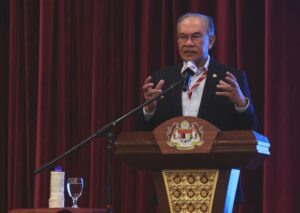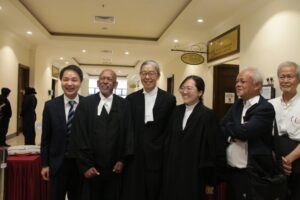KOTA KINABALU, Nov 12 — Sabah’s unity government leaders have hailed the federal government’s decision not to appeal a High Court ruling on the state’s 40 per cent revenue entitlement as a “historic” move towards fiscal justice, while calling for it to be implemented swiftly and transparently.
The chorus of praise came after the federal Cabinet confirmed it would honour the court’s decision, ending decades of dispute over the constitutional provision.
Sabah Barisan Nasional (BN) chairman Datuk Seri Bung Moktar Radin said the decision affirms that the 40 per cent entitlement is a fundamental legal right, not a political concession. “A constitutional right is not a bargaining chip; it must be honoured exactly as written,” he said in a statement.
He vowed that BN Sabah would “scrutinise every stage” of the upcoming negotiations to ensure they are free from political manoeuvring and based on verified financial data.
Sabah PKR chief Datuk Mustapha Sakmud lauded the move as a “bold and principled” decision that proves the Madani government’s commitment to the Malaysia Agreement 1963 (MA63).
“This historic decision marks the beginning of a long-awaited recovery of fiscal justice that the people of Sabah have been waiting nearly 50 years for,” he said.
Parti Bersatu Rakyat Sabah (PBRS) deputy president Datuk Arthur Kurup echoed this, stating that the government’s stance reflects a genuine commitment to developing the state and builds on other pro-Sabah actions, such as the victory against the Sulu claim.
All leaders agreed on the next step: negotiations between the federal and state governments must begin immediately after the upcoming state election.
Mustapha urged both sides to proceed “with sincerity and without political games” to ensure the revenue returns to benefit the people of Sabah.
“I urge Sabahans to have faith in the prime minister and the unity government, which has shown consistent effort to protect and advance Sabah’s interests,” Kurup said.
Yesterday, the Attorney General’s Chambers said it would not appeal the ruling following a special Cabinet meeting, but would challenge parts of the judgment it said contained “defects” and inaccuracies.





